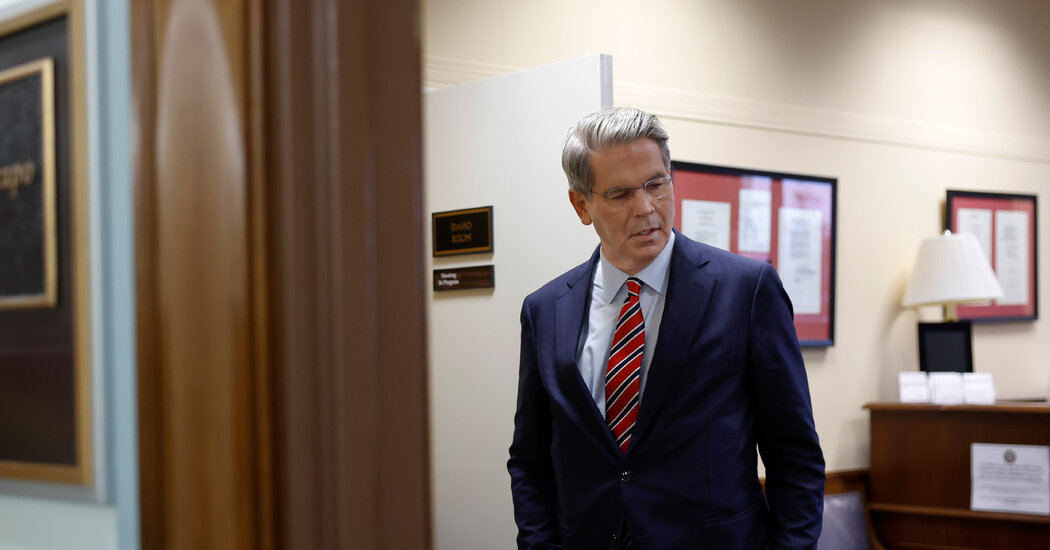When Prime Minister Shinzo Abe set out to rejuvenate Japan’s economy more than a decade ago, he laid out a strategy known as the “Three Arrows,” which aimed to banish deflation by easing monetary policy, increasing government spending and restructuring the economy so that it was poised for growth.
President-elect Donald J. Trump could soon brandish three arrows of his own. Mr. Trump’s Treasury secretary pick, Scott Bessent, has mapped out a three-pronged approach to jump-starting a U.S. economy that has been saddled with inflation and sluggish output. The concept, which he billed during the campaign as his 3-3-3 plan, entails increasing growth to 3 percent, cutting the budget deficit to 3 percent of gross domestic product and raising U.S. energy production by three million barrels of oil per day, or the equivalent in other fuels.
A longtime hedge fund investor, Mr. Bessent has been a student of “Abenomics” since his days as the top money manager for the billionaire philanthropist George Soros. In that role, he met regularly with advisers to Mr. Abe and traveled from New York City to Tokyo on a monthly basis. He also famously bet against the yen.
“I became convinced that Abe and his circle of advisers would commit to directing all of the resources of the prime minister’s office to this multipronged and daunting task,” Mr. Bessent wrote in a 2022 essay in The International Economy magazine.
While Mr. Trump has made broad economic promises on the campaign trail this year to supercharge the economy, slash the debt and unleash energy production, Mr. Bessent’s benchmarks offer a more specific scorecard against which Mr. Trump’s economic performance can be measured at the end of his term.
But reaching those marks will not be easy and will depend on a variety of factors, including how deeply Republicans decide to cut taxes, how high Mr. Trump ratchets up tariffs and how much oil global markets demand.

